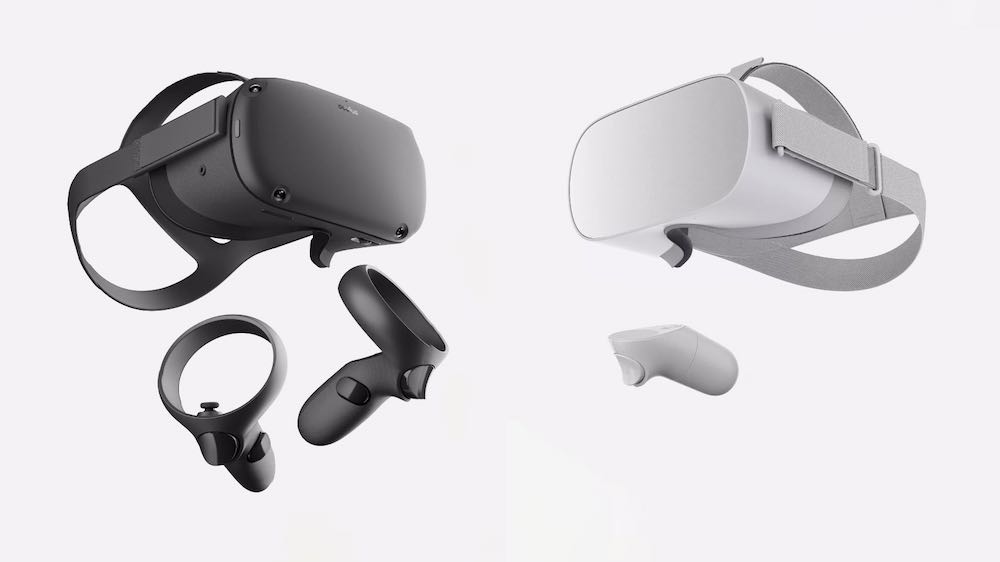Latest Oculus SDK Version Does Not Support Oculus Go
It looks like Facebook’s standalone VR headset Oculus Go is soon being phased out. The latest Oculus SDK (v19/1.51) does not support the 3DoF headset and the device is gradually disappearing from the development environment.

In the SDK’s developer release notes, Facebook states that it has officially dropped both the Unity and Unreal Engine support for Oculus Go. However, developers will still be able to make use of the Oculus Integration v18.0 or prior versions. The latest announcement effectively puts a stop to any possibility of future development efforts on the headsets. It is a signal to developers to wind up their Oculus Go projects as soon as possible or migrate them to the Oculus Quest platform.
This means that Oculus Go developers who want to use two of the most popular graphics engines to build Go apps will now have to fall back on the older version of the SDK which lacks some of the updated functions.
This has been long time coming and shouldn’t be a surprise to Oculus Go developers. In late June, Facebook announced its plans to retire the standalone 3DoF Oculus Go. The platform’s software will, however, continue receiving security patches and bug fixes until 2022. Facebook is embarking on the course of phasing out the headset which will culminate in the total content pipeline freeze by December of this year.
While it lacks motion controllers and positional tracking, the cheap 3DoF headset has been popular with many virtual reality beginners as it was positioned as a casual and accessible VR device. Prices for the Oculus Go headset begin from $200 for the 32GB version. In January this year, prices hit lows of $150. The Oculus Go headsets still represent some of the cheapest options for enjoying reasonably good VR experiences.
When it was launched in May 2018, it was priced to sell quickly and it has resonated well with many buyers, particularly during the holiday sales. Facebook has now stated that this will be it its last 3DoF device and it is now prioritizing on its other standalone platform, Quest, as it thrusts ahead into a 6DoF future.
The Oculus Go headset hasn’t been officially sold since June. However, Go users will still be able to use the headset even if no new apps will be allowed on the headset from December 18th.
Following the success of its standalone Oculus Quest headset, Facebook will in the future rely entirely on its 6DoF headsets- Oculus Quest and Oculus Rift (S). Facebook dropped support for Samsung Gear VR in later 2019. With the smartphone-powered VR era coming to an end and Oculus Go finally being phased out, the tech giant has already halved its VR headset portfolio within a year and completely brought an end to its 3DoF era. As Facebook exits this market segment, manufacturers such as Lenovo and Pico will be looking to fill in the gap, particularly in the enterprise market segment.
At the Oculus Connect 7 this year, Facebook is set to unveil its new ‘Oculus Quest 2’ VR headset and announce its future mobile VR strategy.
https://virtualrealitytimes.com/2020/08/08/facebook-discontinues-sdk-support-for-oculus-go/https://virtualrealitytimes.com/wp-content/uploads/2020/08/Oculus-Quest-and-Oculus-Go-Headsets-600x337.jpghttps://virtualrealitytimes.com/wp-content/uploads/2020/08/Oculus-Quest-and-Oculus-Go-Headsets-150x90.jpgBusinessOculusIt looks like Facebook’s standalone VR headset Oculus Go is soon being phased out. The latest Oculus SDK (v19/1.51) does not support the 3DoF headset and the device is gradually disappearing from the development environment. In the SDK’s developer release notes, Facebook states that it has officially dropped both the...Sam OchanjiSam Ochanji[email protected]EditorVirtual Reality Times - Metaverse & VR
